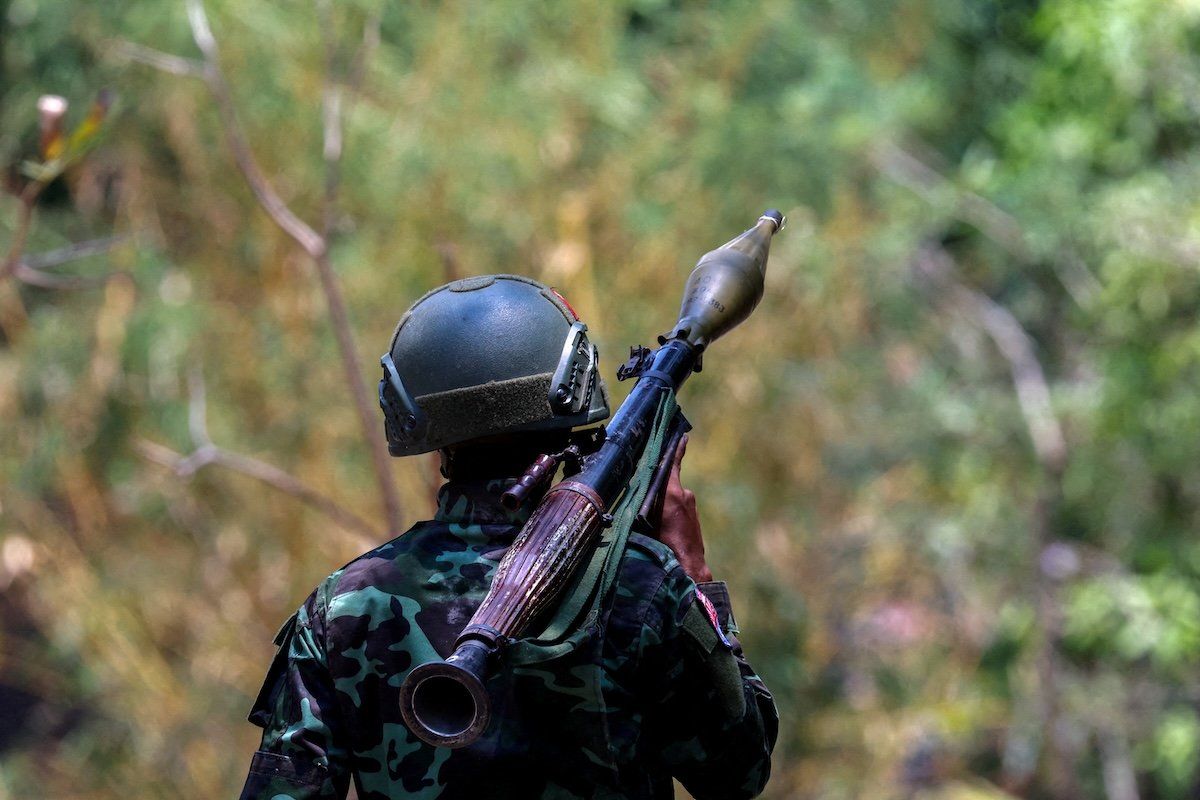In a major symbolic blow to the junta that controls Myanmar, fighters from the Karen National Union’s armed wing retook the eastern town of Manerplaw on Wednesday, nearly 30 years after first losing it.
The background: The junta has held power since a 2021 coup, but has been on its back foot this year, facing losses along its borders with Thailand, China, India, and Bangladesh, as ethnic militias team up with pro-democracy fighters to press government troops from all sides.
The KNU has been fighting for independence since 1949, and has long seen Manerplaw as the eventual seat of its government. The town became an important symbol for many resistance groups after the military crushed major pro-democracy demonstrations in the big cities in 1988, but the junta was able to exploit rivalries between local groups of Buddhists and Christians in order to seize the Manerplaw in 1995. That triggered a deluge of refugees fleeing across the border into Thailand, where thousands remain to this day.
Will the junta be forced to negotiate soon? It’s too early to say. The victory is sure to inspire the KNU and other ethnic militias and pro-democracy groups, but for all their success on the rugged periphery of the country, anti-junta rebels have yet to pose a serious threat to the major population centers in the lowlands at the center of Myanmar. Their success will depend on maintaining unity and a shared vision of a federal, democratic Myanmar.